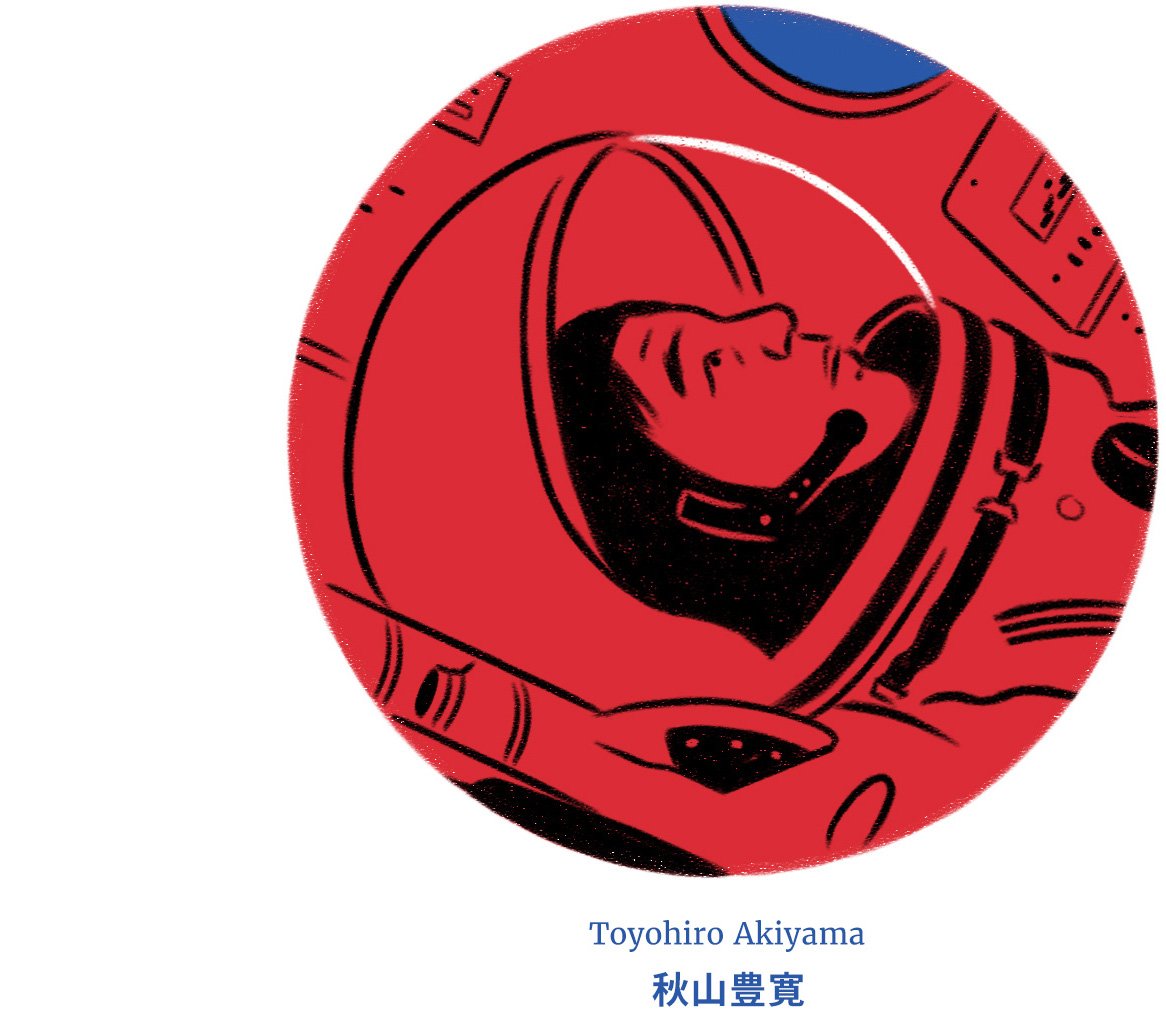Early in the morning of December 2, 1990, a Japanese man named Toyohiro Akiyama strapped into the flight deck of a Soyuz TM-11 rocket. Looking skyward as the countdown commenced, he took a deep breath and thought back to the strange circumstances that would lead him to become the first Japanese man in space.
The rocket he was inside had been built by the Soviet Union, and the unique arrangement of a Japanese citizen boarding a Soviet vessel came as the result of the two nations’ economies heading in different directions. Japan was flush with cash from a booming 80s economy, while the Soviet Union, having recently introduced the disastrous Perestroika program to modernize their economy, suffered from debilitating inflation and a desperate need for foreign cash.
Seizing on a rare opportunity, the largest independent TV station in Japan—TBS—planned a publicity stunt of celestial proportions: they’d strap a news correspondent to a rocket, shoot him to the Mir Space Station, and beam down a week-long series of live broadcasts to massive ratings. The multi-million dollar mission was funded by corporate sponsors like Sony, Minolta, and sports drink Pocari Sweat, whose logos were plastered all over the rocket and the news correspondent’s space suit.
Unlike a typical astronaut, Akiyama was 47 years old, out of shape, and did not have a background in engineering, physics, or aeronautics. TBS had conducted an internal search for the ideal space traveler, and Akiyama, who’d worked as a bureau chief and correspondent for 24 years, was nominated for the role because of his reputation as a free thinker.
As the rocket boosters fired, the ad-wrapped vessel shook and began its ascent to the heavens. Its journey was monitored by a complex network of TBS relay stations set up across the globe, each of which eagerly awaited Mr. Akiyama’s first message. Spirits ran high despite a curiously underwhelming pre-launch interview where Akiyama, a lifelong 4-pack-a-day smoker, was asked what he most looked forward to when he returned to Earth. “I can’t wait to have a smoke,” he said, turning to enter the rocket.
Forty minutes into the mission, with the Soyuz TM-11 no longer visible from the ground, TBS’s Mission Control made contact with Akiyama, who appeared dazed by the rocket’s velocity. Struggling through technical difficulties, he uttered a confused “Is this live?” before the feed abruptly cut off.
The rocket reached its destination two days later, successfully docking with the Mir Space Station. The station’s cosmonauts reported that Akiyama had not handled the journey well, saying that they “had never seen a man vomit that much.” In his first broadcast from space, Akiyama struggled to relay the majesty of his celestial newsroom, instead complaining of a debilitating space sickness, where he felt his brain was “floating around in my head” and repeatedly stating how desperate he was for a cigarette.
The following days’ broadcasts were of a similar variety. One day, Akiyama bemoaned his failure to bring enough underwear. On another, while demonstrating how one lives on a Space Station, he burned his mouth on a space meal and grumbled that he should’ve brought along some “natta”- a pungent, fermented soybean. In moments when he wasn’t running down a list of personal disappointments, he looked down to observe major cities on the globe, pointing out that many were surrounded by concerning amounts of pollution.
Ratings for the nightly broadcasts plummeted throughout the week, with viewers growing weary of Akiyama’s nicotine cravings, dreams where his dead mother visited him, and the challenges of relieving himself in zero gravity.
On December 10, 1990, Akiyama and two Soviet cosmonauts reentered Earth’s atmosphere, landing a charred space capsule in a field in Kazakhstan. For the grand finale of one of the greatest publicity stunts in history, the capsule was pried open and Akiyama’s head could be seen poking up through the hole. When asked to relay his impressions after becoming the first Japanese citizen in space, he could only say: “I’ve arrived back to Earth as a lump of various desires. I want to eat something that actually tastes good, smoke a cigarette, and drink a beer.”
Despite an initial ratings bonanza, TBS reported a $7.5 million loss on the mission, making it the first and last spaceflight ever sponsored by a TV Network. As for Akiyama, the experience had a profound effect on his life. Disenchanted by the commercialization of the news business, he retired from TBS and left Tokyo to become an organic farmer. He lived a spartan life without cell phones or computers until 2011, when he was forced to abandon his farm in the wake of the Fukushima Nuclear Disaster. These days, Akiyama works as an agricultural professor in Kyoto, where aside from a reputation as a radical environmentalist, he’s also become known as the first antihero of space travel.





